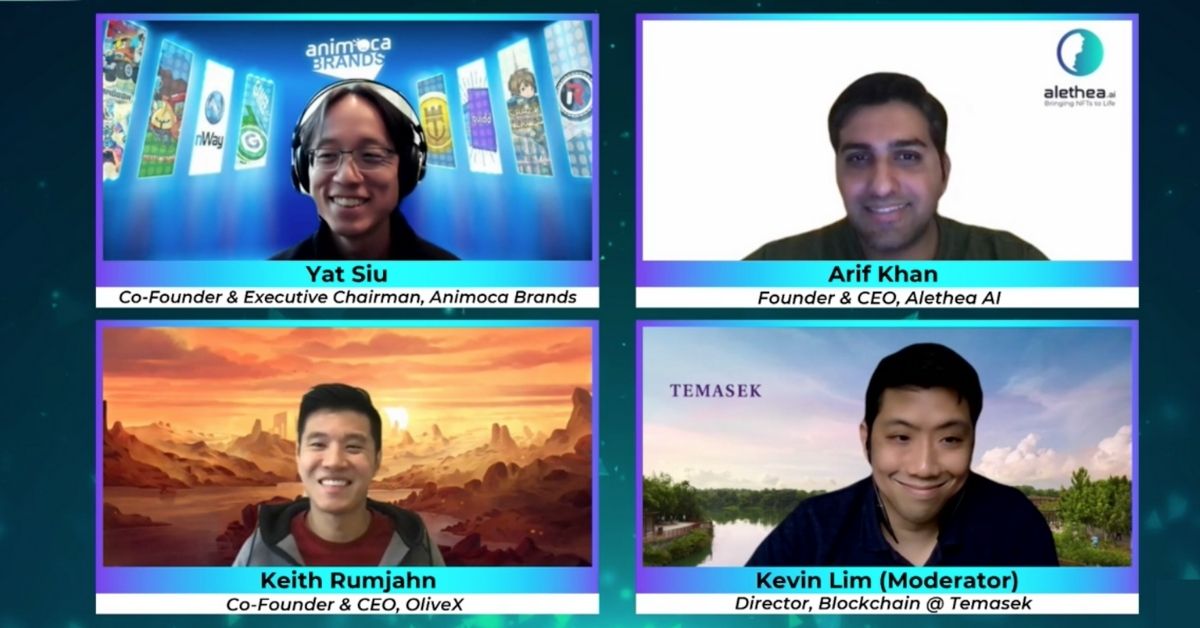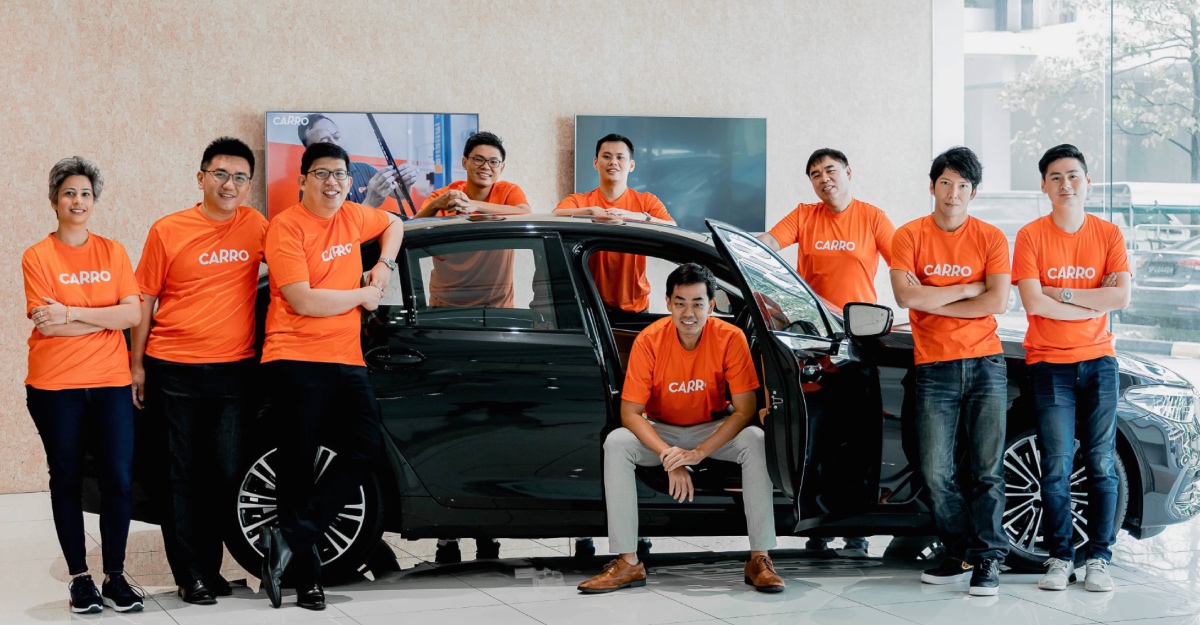Non-fungible tokens (NFTs) are blowing up around the world, sparking a new way to own both physical and digital assets.
Unlike our government-issued currency which is fungible (where each RM1 is of the same value and therefore interchangeable), NFTs have a unique digital value that you can attach to assets. These assets can be in the form of a digital art piece, a snippet of a song, or even a Tweet, which are then bought with cryptocurrency. You can read more about what NFTs are and how they work in our explainer piece here.
The trend is still relatively new in Asia, but more people are jumping onto the bandwagon by the day. In a Wild Digital SEA 2021 panel, we got to learn more about NFTs from speakers involved in startups building the ecosystem today.
They also discussed some areas of growth for NFTs that current and future entrepreneurs can leverage.
Moderated by Kevin Lim, Director of Blockchain at Temasek, he was joined by:
- Yat Siu, co-founder and Executive Chairman at Animoca Brands;
- Arif Khan, founder and CEO of Alethea AI;
- Keith Rumjahn, co-founder and CEO of OliveX.
NFTs have a variety of applications
One factor that drives an NFT’s value is its utility where it can be used as currencies, especially in games.
For example, Keith shared that OliveX has created NFTs that can be earned as tokens within the company’s game, Zombies, Run! Essentially, to earn tokens and medals (which are the in-game NFTs), runners must hit certain milestones in their fitness journey within the app.
While the tokens can be used as in-game currency to buy certain items, medals can be used as a badge, to showcase your achievements and overall identity within the metaverse.
Did you know: The metaverse is a digital reality that combines aspects of social media, online gaming, augmented reality (AR), virtual reality (VR), and cryptocurrencies to allow users to interact virtually.
Because of how unique each asset is, the other values NFTs pose is their scarcity and the ability they give people to own certain property rights.
At Arif’s company, Alethea AI is building an intelligent metaverse filled with what they call intelligent NFTs (iNFT). The iNFTs can interact, talk, and learn from humans (think of it like Google, but you can own it).
Arif believes that NFTs don’t have to be limited to just static images or static virtual assets, but can actually be interactive and dynamic consumer experiences that can be upgraded over time.
A metaverse of opportunities
Looking at the broad possibilities of NFTs, Kevin threw a question to the panelists about what opportunities they see within this industry.
Arif and Yat Siu claimed that NFTs will allow for huge composability. It’s where each entrepreneur can create one small element that can be bonded together as something larger, enabling more creativity that was not possible before.
Yat Siu related NFT’s composability to the car industry.
“I may have made a car, but someone else invented the baby seat, and another person owns petrol stations, while someone else constructed the roads,” Yat Siu illustrated. “The entire economy is built around it because it was entirely composable.”
He stated that this is what NFTs are capable of, and it represents what can be done with peer-to-peer businesses in the physical world that the digital world could never do before.
Furthermore, Yat Siu believes that GameFi will be one of the most vibrant sectors that’ll thrive, as gamers have strong ownership and pride over their virtual goods.
Dictionary time: GameFi is a fusion of the words “game” and “finance”, and it refers to the financialisation of video gaming. This concept involves giving players financial incentives to play and progress through games.
Okex / Coin Desk
But when he views the industry as a bigger picture, he believes that NFTs are still in the nascent stage with a plethora of possibilities that have yet to be thought about, which Keith agreed with.
Driving mass adoption brings up some issues
Keith pointed out that the reason why gaming has been an efficient tool in driving adoption for NFTs is due to the fact that users would merely be playing to earn.
Games are easy encouragement for people to begin earning NFTs because they’ve created a value system that users want to work towards, such as the tokens or medals mentioned earlier.
However, Yat Siu warned of the danger in lowering the barriers to entry, whereby having the bar too low tends to take away the knowledge factor behind it. He related it to financial planning, where someone who’s knowledgeable would know to invest their money somewhere providing higher returns, as opposed to a bank’s savings account that is lower.
“If I make it so easy where I can just sign up, play a game, and gain assets, in this process I’ve surrendered all my rights because I don’t even know what it’s about,” he exemplified.
You know, you don’t need 100% of the world to be voting to make democracy work, but you need at least a majority that will continue to vote and understand why democracy is important so the democratic system stays alive. If we don’t, then there’ll be a new king. And that’s what we have to avoid in the digital world.
Yat Siu, co-founder and Executive Chairman at Animoca Brands
A balancing act to regulate
Yat Siu exemplified that in the Philippines, more people own a crypto wallet than a credit card as the former is just more accessible while earning them higher returns than their day jobs. “Over there, you can use crypto for down payments on a house and car, so there’s gonna be some threats on the nation’s currency if not managed well,” he stated.
On the other hand, there will also be opportunities because at the end of the day, as NFTs and crypto are a kind of foreign exchange. Filipinos who work as domestic workers in Hong Kong, Malaysia, or Singapore can be paid via these methods too, presumably with higher value.
Hence, regulations will be a balancing act for governments, and it’s up to companies within the decentralised finance space to advise them on both the benefits and threats of NFTs.
- Read more of what we’ve written on NFTs, blockchain, and crypto here.
- You can read more on what we’ve written about Wild Digital SEA here.
Featured Image Credit: Yat Siu, co-founder and Executive Chairman at Animoca Brands / Arif Khan, founder and CEO of Alethea AI / Keith Rumjahn, co-founder and CEO of OliveX / Kevin Lim, Director of Blockchain at Temasek









